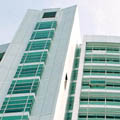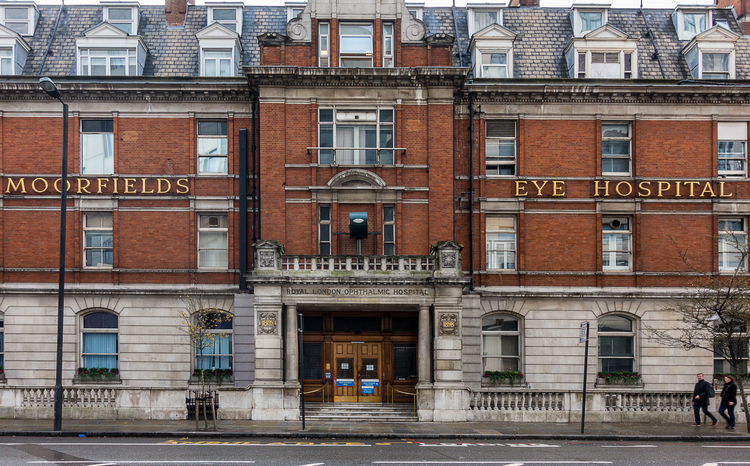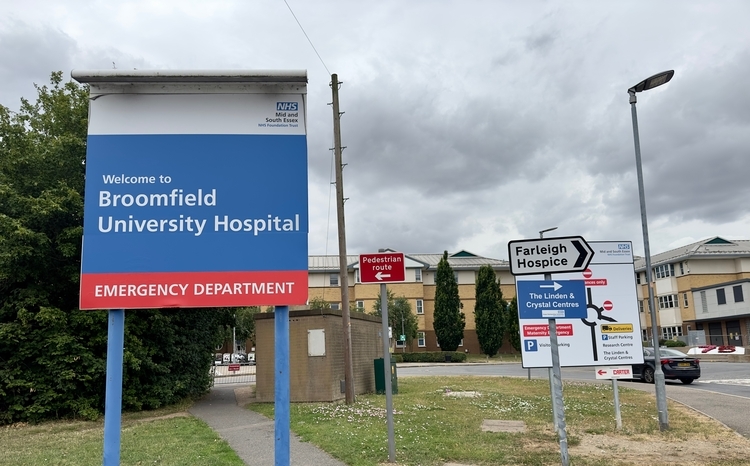First for Carecast
- 2 March 2006
University College London Hospitals Foundation Trust is the first trust to go live with the Carecast patient record system from IDX Corporation. A version of the system that is due to eventually be implemented in trusts across London.
UCLH signed a £70m contract directly with US software supplier IDX to begin implementing its proven Lastword electronic patient record solution by summer 2004. The same system was already in use at Chelsea and Westminster NHS Trust.
However, UCLH subsequently took the decision to switch to IDX’s new Carecast EPR product – becoming the first UK hospital trust to implement the system which was subsequently selected for the whole of London. In effect UCLH became the guinea pig for the capital.
The system went live across the Trust in June 2005, almost a year later than originally planned, but delivered just in time for the opening of the trust’s brand new flagship University College London hospital last year. The system is now available to about 2,000 trust staff.
Progress so far
Interim IT Director at UCLH Colin Jervis and colleagues provided E-Health Insider with an update on progress so far. Kevin Jarrold, the former IT director at UCLH, is now Connecting for Health’s regional implementation director for London.
Jervis explained that so far the trust has the Carecast patient administration system (PAS) – providing admission, discharge and transfer (ADT) information – running across the entire trust. UCLH is currently running Carecast as a stand alone system that is not connected to the NHS spine, though the trust says it will converge with CfH in the future.
"We’ve always worked very closely with CfH and the intention is for our EPR programme to converge with it at some stage."
In addition to ADT patient administration functions the trust has also begun to implement some clinical functionality in A&E and started to prepare to implement resulting and reporting.
"UCLH already had a Picture Archiving and Communications System and results reporting," explained Jervis. Clinical functionality will next be extended with the introduction of pathology and radiology results reporting, enabling radiology and pathology results to be viewed through a web-based portal.
The next phase of the roll out, beginning in 2006, "will introduce further clinical functionality, specifically results and reporting and care planning," explained Jervis. "We’ll look to pilot Carecast resulting and reporting in Radiology and then gradually roll out across the trust."
Jervis added: "The roll out of Phase 2 should take 12-18 months, and after that phases 3, 4 and 5 will provide increasing levels of clinical functionality, that will culminate in level five EPR functionality."
Maria Rajwer, a nurse on secondment as an EPR implementation analyst at the trust told EHI: "We’ve been working for 2 years on phase 2 getting the data for care planning and care assessments, and are continually reviwing work done to make sure people are happy with it."
Phase 3 of the project will largely focus on providing more detailed clinical decision support. Jervis says that so far the project is going well, but estimates that it will take another three years of implementation work before the trust has fully implemented electronic patient records.
US-UK differences
One of the main issues that UCLH and IDX have had to focus on is anglicising the Carecast product, a system that was originally developed to meet the very different requirements of the US healthcare system, where a central requirement is recording transactions and transaction costs.
In the NHS, however, hospital activity is more focused on patients and most frequently recorded in terms of finished consultant episodes. With accurate recording of activity essential to ensure trusts get paid by SHAs and PCTs this had to be got right or UCLH would face losing revenue.
"A lot of work was done to understand the structure of the database to allow us to get the reports we need," said Jervis. "We’re now using Business Objects and in the next stage we’ll have more SQL functionality to generate reports."
Another challenge that has now been met was to ensure that Carecast could provide the information needed for the Minimum Data Sets that the trust has to collect on patients, something that had to be added into the system.
Work is now also underway with IDX and BT Capital Care Alliance, the LSP for London, to make Carecast Choose and Book compliant and able to link to Connecting for Health’s national data spine.
Smart cards
The trust has also begun to introduce smart cards, using the same GemPlus software used by the National Programme for IT. "We’re at a trial stage with about 30 cards in use at the moment," said Jervis. "The plan is to roll them out in stages across the trust."
A key part of the implementation at the trust has been the installation of a high speed, 54 mbps, robust wireless network – the largest wireless hospital network in the UK. This means that in addition to regular desktop PCs the trust can provide staff with wireless access to Carecast and office applications.
"The trust was wise enough to invest in wireless technology," said Jervis. "The key to improving healthcare through IT is to make it almost invisible to the user. "
With the wireless network in place the trust is considering the introduction of radio frequency identification (RFID) to track devices and samples and later to implement Voice Over Internet Protocol (VoIP) communications.
One of the ways being tested for staff to access the new system is through a CoW (Computer on Wheels). The CoW is a wirelessly linked PC on a robust trolley that can be moved between wards. "We’re piloting this technology together with other devices like tablet PCs," said Jervis.
Rajwer provided EHI with an impressive demonstration of using a tablet PC to access the Carecast system in real time. Although just a demo the Windows-style system accessed wirelessly over a Tablet PC looked extremely modern and user friendly.
"It’s all about providing clinicians with information at the point of care," said Rajwer. She said that one of the nice things about the tablet was that a nurse can easily show their patient the electronic record or diagnostic image.
"The main thing is that you can more easily plan a patient’s care with them or even show them diagnostic images. It also makes it easier to discuss a patient’s care with colleagues."
As well as CoWs and tablet PCs the trust is also looking at handheld PDA devices.
Projected benefits
Jervis says that examining benefits from the system is a high priority for the trust: "We’ve got five analysts on the team looking at benefits realisation and processes."
"When you put in a new system you can’t just switch it on and expect care to improve," said Jervis. "You have to first lwork with clinicians to look very carefully at processes."
He says that clinicians at the trust have been involved in the project "at many levels" throughout. "We’ve got clinical people from all backgrounds involved and a Clinical Advisory Group of senior clinicians who inform on clinical benefits and oversee the project."
Asked what lessons UCLH has learned from its implementation of Carecast that would be of value to other trusts, Jervis said. "Training, training, training is the main thing." He added that the trust was extremely fortunate to have an excellent training facility opposite the main UCLH campus on Euston Road.





